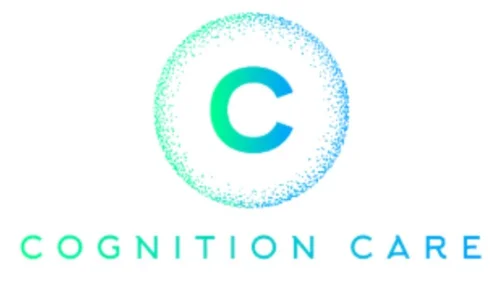
Exploring Autism as an Adult?
Here’s what to expect from your assessment journey
Understanding Autism at Cognition Care
At Cognition Care, we understand autism as a natural, lifelong neurodevelopmental difference, not a disease or something to be cured. Every autistic person is unique, and our goal is to help you better understand your traits, needs, and strengths through a respectful and evidence-based assessment process.
Thinking About an Autism Assessment?
Seeking an autism assessment can feel like a big step - but it doesn’t have to be overwhelming.
At Cognition Care, we offer a calm, supportive space where you can explore your experiences, make sense of your traits, and find answers that feel right for you.
What This Page Covers
This page is your step-by-step guide to the adult autism assessment process at Cognition Care. We’ll walk you through what happens before, during, and after your appointment - including the screening tools we use, how the session works, and how we share outcomes.
Just expand each section below to learn more.
-
What happens after you book
After you book, we'll send you a link to complete a few simple forms online.
These include:
Contact & Medical Form – tells us about your health and history
Consent to Share Records – lets us know if you’d like us to contact your GP or others
Autism Screening Tools – five short questionnaires that help us understand your traits:
AQ-50 (Autism Quotient)
EQ (Empathy Quotient)
CAT-Q (Camouflaging Autistic Traits Questionnaire)
RAADS-R (Ritvo Autism Asperger Diagnostic Scale)
Collateral History Form (if possible, completed by someone who knew you in early life — e.g. a parent, sibling or close friend)
These tools typically take 45–60 minutes in total to complete. It's fine to take breaks and come back to them.
Please complete everything at least 48 hours before your appointment, so your clinician has time to review it.
You’ll also receive a secure video link for your online appointment - no downloads needed.
If anything feels unclear, we’re happy to help.
-
Yes - the screening questionnaires help your clinician understand how autism traits present for you, and whether they meet diagnostic criteria. They also support a more focused and meaningful assessment.
If you’re unsure how to answer certain questions, just do your best - your clinician will go through everything with you.
-
On average, it takes around 45–60 minutes in total to complete all the screening forms.
You do not need to complete them all in one go. Many people choose to do one or two at a time and come back later.
-
If possible, we ask a parent, partner, or someone who knew you as a child to complete a short Collateral History Form. This helps us understand your developmental history and is recommended in national guidelines.
We understand that not everyone has someone available to do this - don’t worry, just let us know.
-
A supportive conversation - not a test
Your adult autism assessment at Cognition Care is a calm, structured conversation with an experienced clinician who understands neurodivergence.
The assessment takes place online, so you can join from the comfort of home - no travel or waiting rooms.
It lasts around 90 minutes, with short breaks as needed.
Before the appointment, your clinician will carefully review your completed autism screening questionnaires - including the AQ-10, EQ, CAT-Q, and RAADS-R.
Your clinician will use internationally recognised diagnostic criteria - including both the DSM-5 and ICD-11 frameworks - to assess whether your experiences are consistent with autism.
They'll explore key areas such as:
Your early development and childhood experiences
Your current traits, strengths, and challenges
How autism may impact your daily life
There’s no need to prepare or bring anything - just come as you are.
You’ll have plenty of time to pause, ask questions, and move at your own pace. -
Yes - you’re very welcome to have support during your autism assessment.
You can invite a partner, friend, or family member to join your appointment online.
Some people find it reassuring to have someone present - whether to help remember details, offer emotional support, or just make things feel more comfortable.
If you're unsure whether to bring someone, that's okay too - just let us know in advance so we can make arrangements.
The session will still focus on your experiences, but we’ll ensure there’s space for your guest if you’d like them to be involved.
Cognition Care aims to make autism assessments as neurodivergent-friendly and supportive as possible - and that includes not having to do it alone
-
Understanding your outcome and next steps
Your clinician will let you know whether your experiences meet the criteria for an autism diagnosis.
If a diagnosis is made, we’ll explain what it means and how it may relate to your life experiences.
If you don’t meet the criteria, we’ll still offer thoughtful feedback and suggestions for support.
You’ll receive a written diagnostic report, usually within 2 weeks, which you can share with your GP, employer, or others if you wish.
You’re welcome to book a follow-up session to talk things through.
Ongoing support options include:
Neurodiversity-affirming autism coaching (coming soon)
Letters for work, education, or reasonable adjustments
Guidance on referrals or next steps in care
There’s no pressure to decide straight away, we’re here when you’re ready.
-
Support is available either way
Some people find an autism diagnosis helpful.
Others don’t meet the full criteria but still want support — and that’s okay.
At Cognition Care, you can still access tools, advice, and coaching even if you don’t receive a diagnosis.
We focus on helping you understand your needs and feel more confident moving forward.
-
Some clients may worry about privacy and sharing personal experiences online.
Yes - all your answers are stored securely using NHS-grade encryption. Only your assigned clinician and essential members of our care team will access your responses. We will never share your information without your consent, unless required to do so by law or for safety reasons, such as safeguarding concerns

